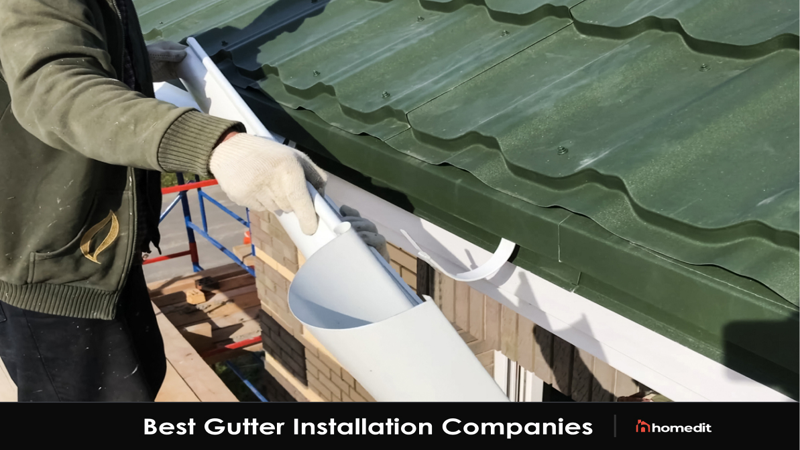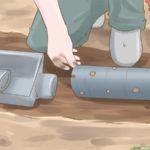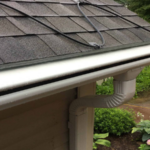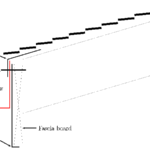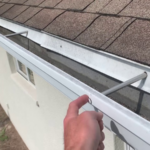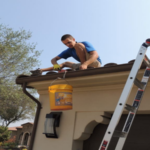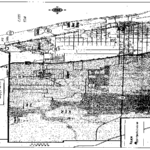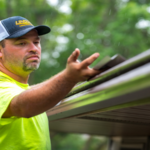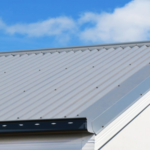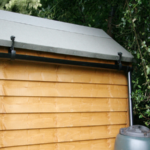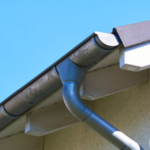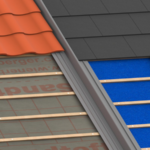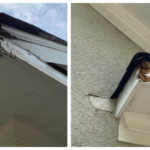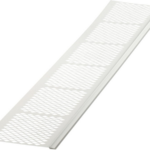Water damage is one of the most common and costly problems faced by commercial property owners. In fact, it’s estimated that water damage costs businesses billions of dollars each year. The good news is that water damage can be prevented with proper gutter installation and maintenance.
Gutters play a vital role in protecting your property from water damage. They channel water away from your building, preventing it from seeping into your foundation or leaking into your interior spaces. But in order for gutters to do their job, they need to be properly installed and well-maintained.
If you’re considering commercial gutter installation, there are a few things you should keep in mind. First, it’s important to choose a quality gutter system that’s designed to withstand the elements. Second, you need to make sure the gutters are installed properly. And third, you need to ensure that they’re regularly cleaned and maintained.
When it comes to choosing a gutter system for your commercial property, it’s important to choose a high-quality option. There are a lot of different types of gutters on the market, but not all of them are created equal. Some are made from inferior materials that will rust and corrode over time. Others are poorly designed and won’t channel water effectively.
What are some common mistakes that people make when installing gutters?
One of the most common mistakes people make when installing gutters is not properly securing them to the fascia board. If the gutters are not properly secured, they can become loose and eventually detach from the house. This can lead to serious damage to the fascia board and the gutters themselves.
Another common mistake is not properly installing the downspouts. The downspouts should be installed so that they direct the water away from the foundation of the house. If the downspouts are installed improperly, the water can seep into the foundation and cause serious damage.
One final common mistake is not properly cleaning the gutters. It is important to clean the gutters on a regular basis to prevent leaves and other debris from clogging them. If the gutters become clogged, they can overflow and cause water damage to the house.
What are the consequences of damaged gutters?
The consequences of damaged gutters are many and varied, but can be broadly divided into two main categories: financial and physical.
On the financial side, damaged gutters can lead to increased costs for home or business owners. This is because gutters that are not functioning properly can allow water to seep into the building, causing damage to the structure and leading to repair bills. In addition, the gutters themselves may need to be replaced more frequently if they are not properly maintained, which can also add to the cost.
On the physical side, damaged gutters can pose a danger to people and animals. This is because they can collapse, creating a hazard for anyone who is underneath them. In addition, the water that leaks from damaged gutters can create slippery surfaces that can lead to falls and injuries.
What is the best gutter guards consumer reports?
There are a few different types of gutter guards, and which one is best for you will depend on your specific needs. Some types of gutter guards are designed to keep out leaves and debris, while others are designed to keep out pests like birds and squirrels. If you live in an area with a lot of trees, you’ll probably want a gutter guard that can keep out leaves. If you live in an area with a lot of birds or squirrels, you’ll probably want a gutter guard that can keep them out. You can find gutter guards at most home improvement stores, or you can order them online.
Can gutters cause water damage?
Your gutters are important for keeping water away from your home, but they can also cause water damage if they’re not properly maintained. Clogged gutters can overflow, spilling water onto your roof and causing leaks. Gutters can also pull away from your home, leaving gaps that allow water to seep in and cause damage to your foundation.
How do you tell if gutters are installed correctly?
- Make sure the gutters are level. Gutters should be installed so that they slope slightly towards the downspout, about ¼ inch for every 10 feet of gutter. This ensures that water will flow towards the downspout and not pool in the gutter.
- Check the hangers. The hangers should be spaced evenly along the gutter and should be securely attached to the gutter and the fascia board.
- Inspect the downspouts. Downspouts should be installed at the corners of the gutters and should be securely attached. Make sure that the downspouts are clear of debris and are not clogged.
- Look for leaks. Inspect the gutters and downspouts for any leaks. Pay close attention to the joints and seams.
If you notice any of these problems, it is important to have them fixed as soon as possible to prevent further damage to your gutters and your home.
Why does water pour over gutters?
Water is one of the most essential substances on Earth. Not only is it necessary for all known forms of life, but it is also necessary for many industrial and agricultural processes. One of the most important properties of water is its ability to flow. This means that water can move across surfaces, carrying particles and dissolved substances with it.
Gutters are designed to take advantage of this property of water. They are installed on the edge of roofs, with the open side facing downwards. This allows water that falls on the roof to flow down into the gutter. The gutter then acts as a channel, carrying the water away from the building.
There are a few reasons why water flows over gutters rather than around them. The first is that gutters are usually installed at a slight angle. This allows the water to flow down the gutter more easily. The second reason is that gutters are usually made of a material that is smooth and slippery. This allows the water to flow over the surface of the gutter without being impeded.
What’s better vinyl or aluminum gutters?
There are a few things to consider when deciding between vinyl or aluminum gutters. Some factors include budget, ease of installation, and durability.
Vinyl gutters are less expensive than aluminum gutters and are easy to install. However, they are not as durable and can crack or break in extreme weather conditions.
Aluminum gutters are more expensive than vinyl gutters but are more durable and can withstand extreme weather conditions. They are also easy to install.
Should gutters be nailed or screwed in?
While there are a few schools of thought on this matter, the most important thing is to make sure that your gutters are properly secured. There are a few different ways to do this, but the two most popular methods are nailing and screwing. Each has its own set of pros and cons, so it’s important to weigh your options before making a decision.
Nailing gutters is the more traditional method, and it’s typically the cheaper option. However, nails can sometimes come loose over time, which can lead to gutters that are no longer properly secured. Screws, on the other hand, are more expensive but they offer a more secure hold. This is especially important in areas that experience high winds or severe weather conditions.
Ultimately, the best way to secure your gutters is to use a combination of both nails and screws. This will ensure that your gutters are properly secured and less likely to come loose over time.
Conclusion
If you’re looking to protect your commercial property from water damage, installing a high-quality gutter system is a great way to do it. With a quality gutter system in place, you can say goodbye to water damage and enjoy peace of mind knowing your property is well-protected.
